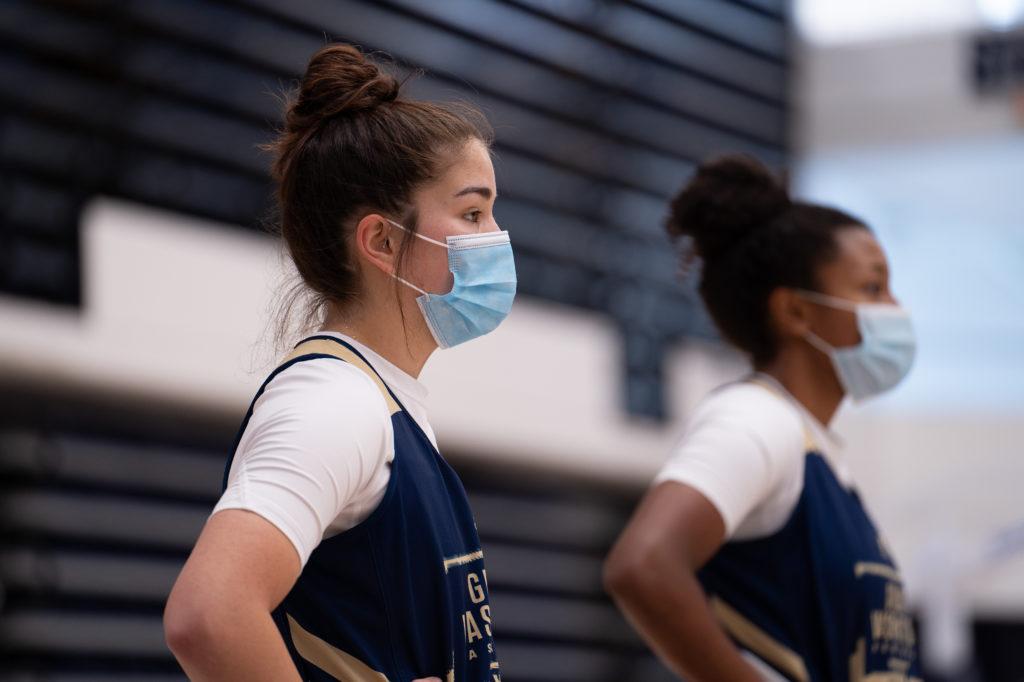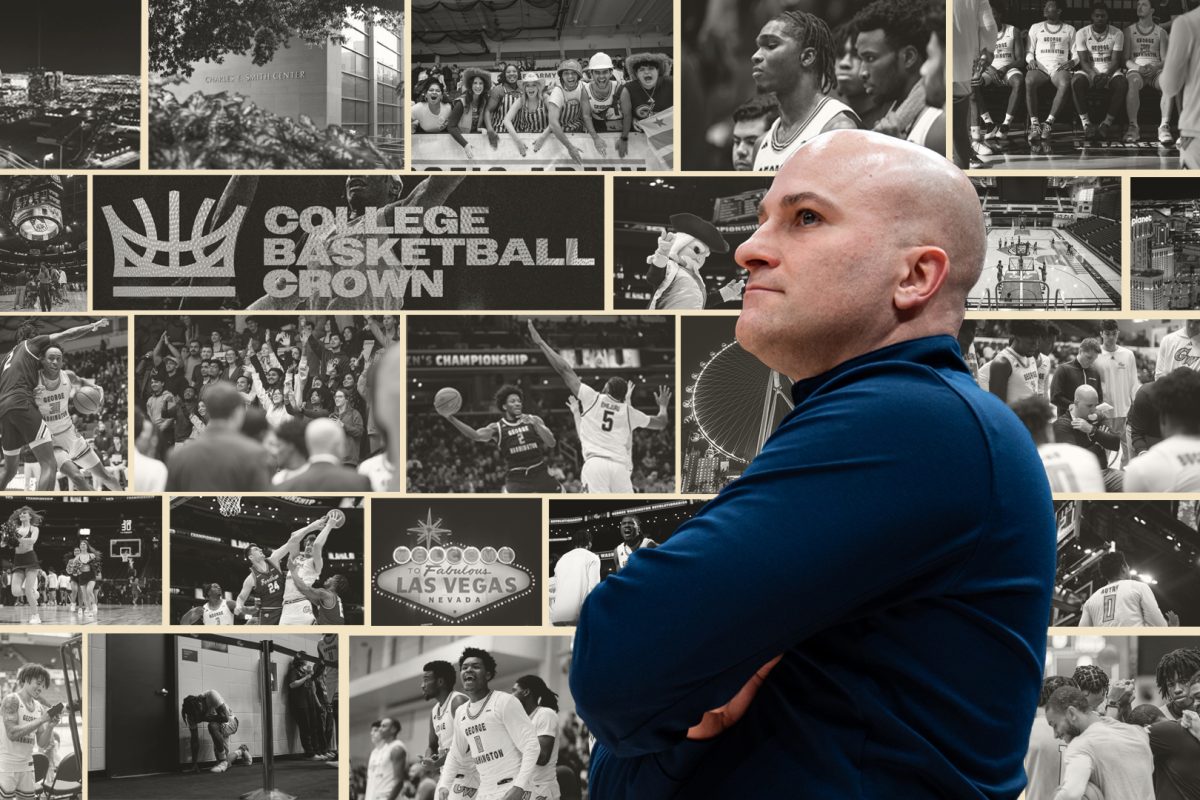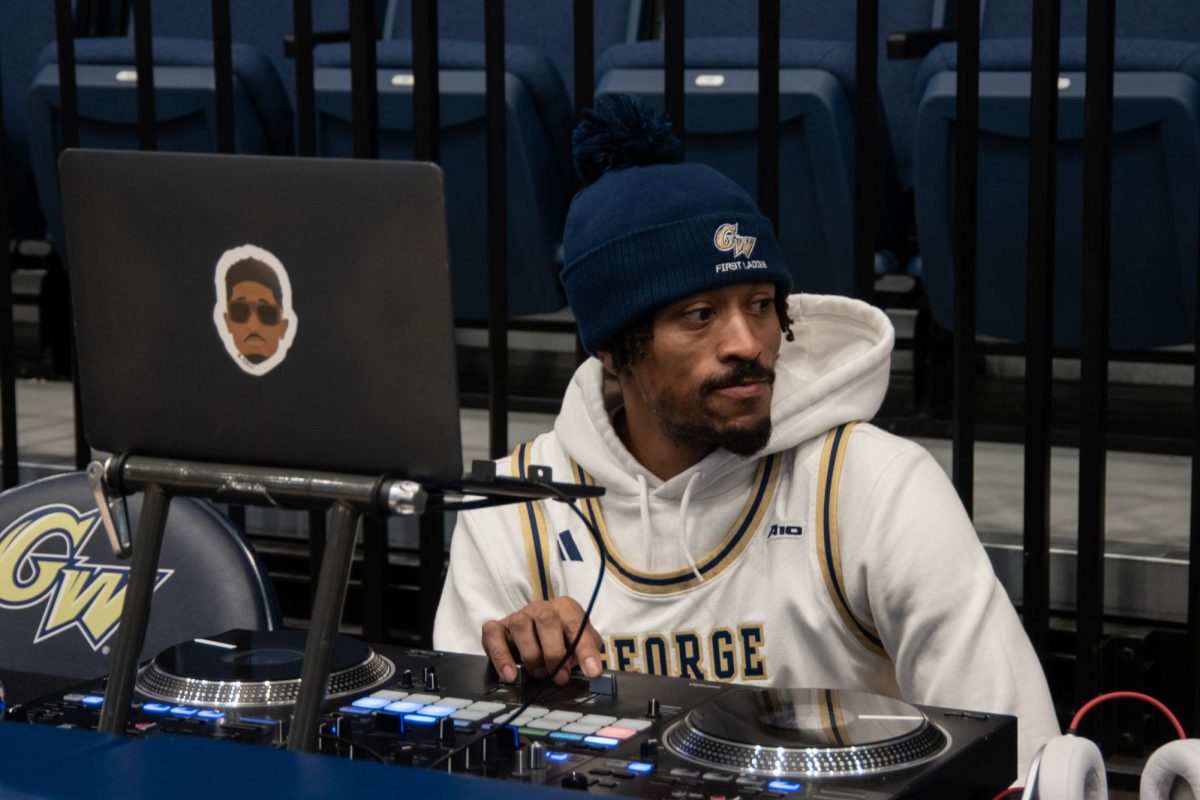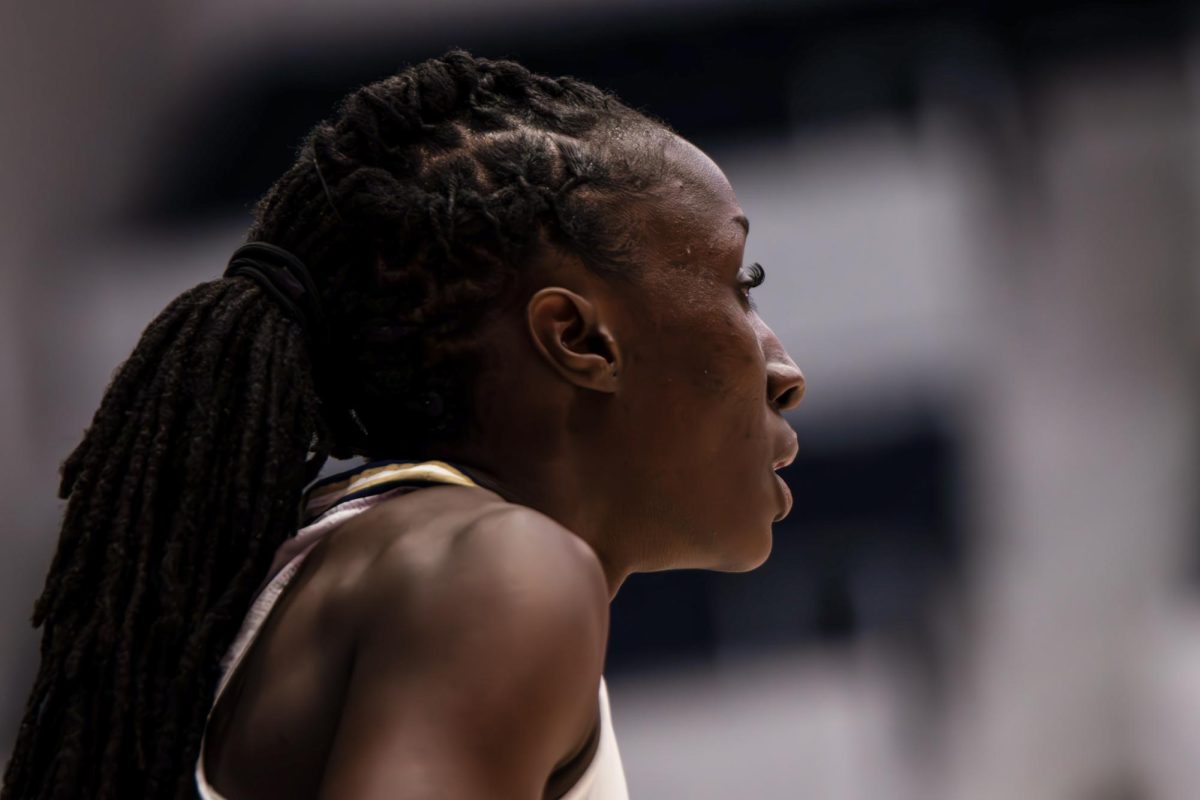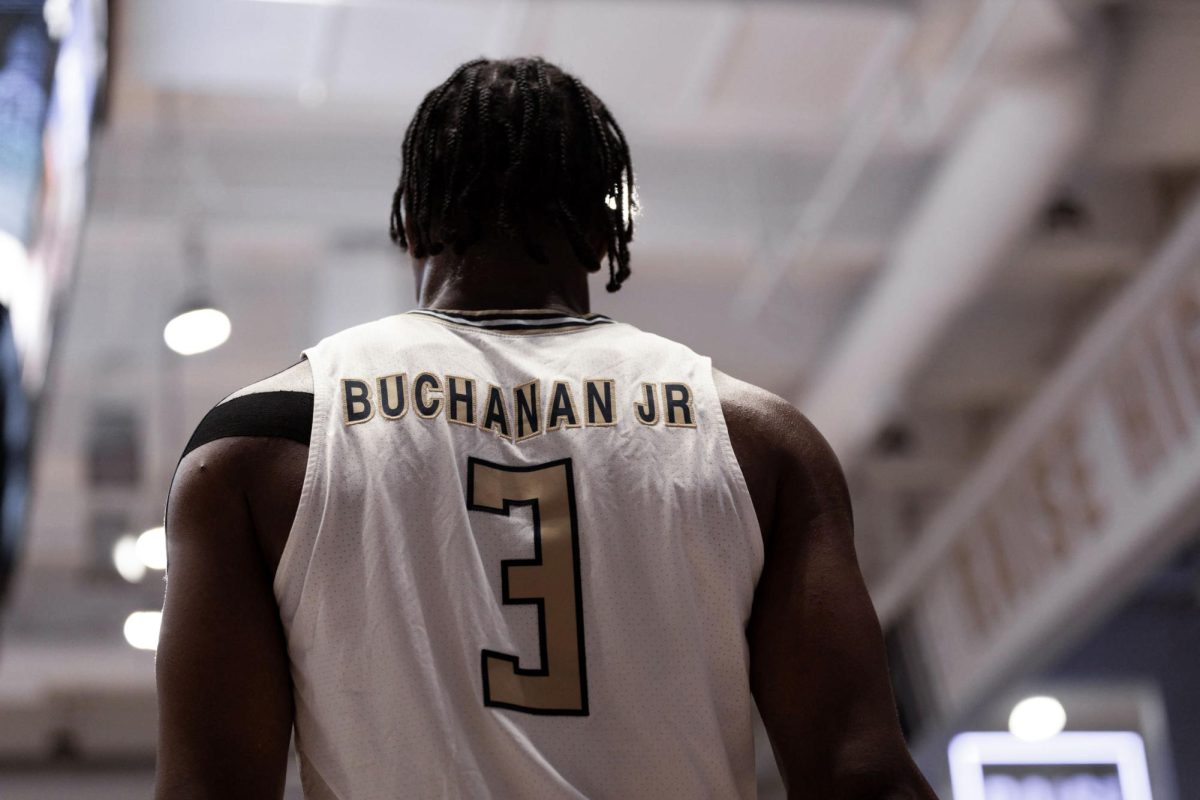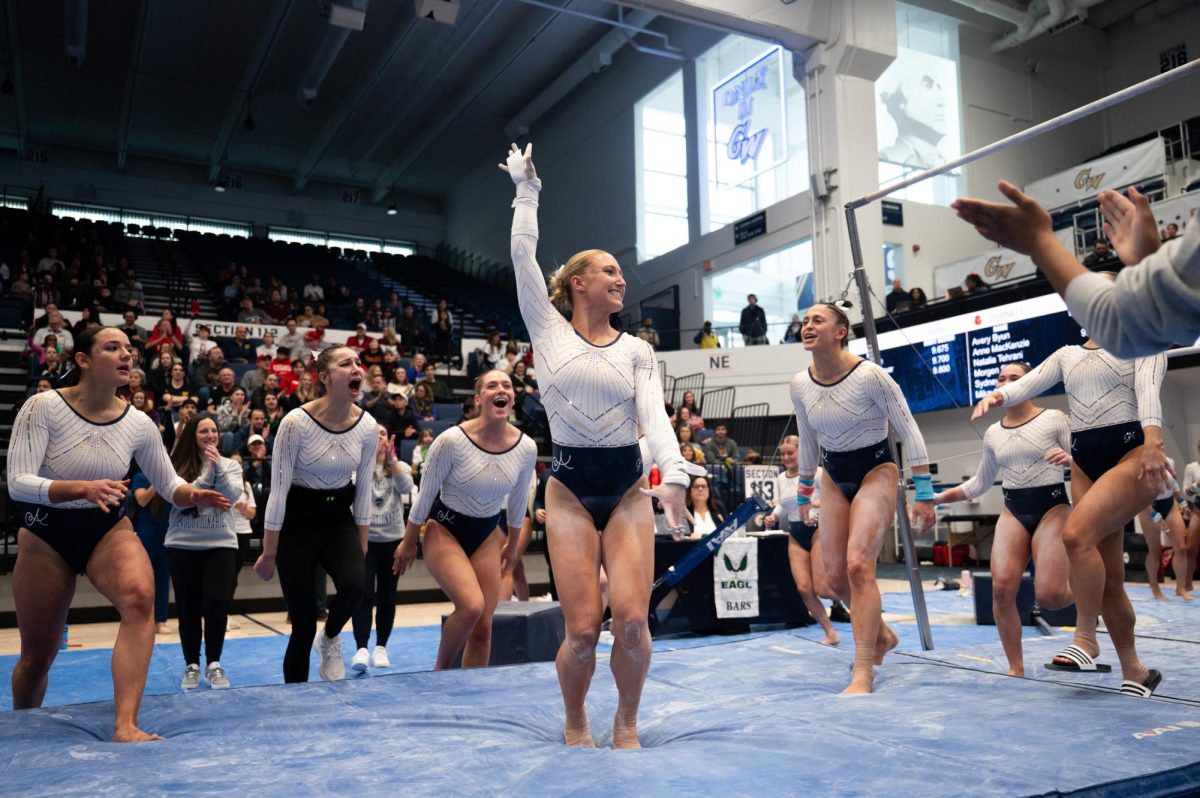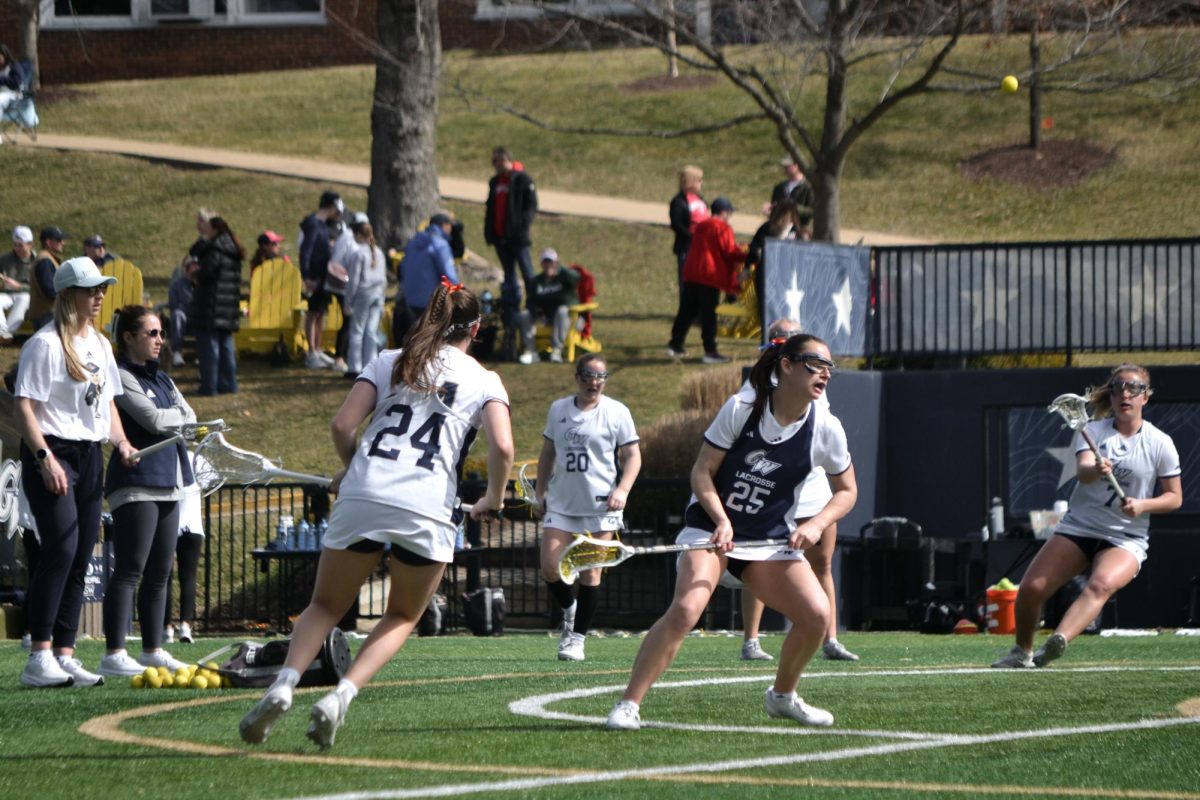The basketball season is on, but that doesn’t mean the COVID-19 pandemic won’t get in the way.
Days after the men’s and women’s teams were bumped in the first rounds of the Atlantic 10 Tournament, the health crisis began to rip throughout the United States, sending coaches and student-athletes home. Now, the teams are back on campus following strict safety protocols, and players said they’re trying to take the season in stride as the virus may cause game cancellations or delays.
“Controlling the things that you can control are the biggest things we’re looking at,” head coach Jamion Christian said. “There are going to be some things that are unfair, but life isn’t fair, and we just need to be in that mindset to unpack it and perform when that ball goes up.”
The men’s squad, which finished in the lower third of the A-10 rankings, is set to return four members of its starting lineup, add seven newcomers and slowly work to secure the program’s first winning season in four years. The women’s team is trying to rebuild from a lackluster 2019-20 season, which hovered around .500 and lost its top three scorers.
Athletes improvise training in quarantine
The COVID-19 pandemic threw a wrench in the programs’ normal preseason preparations, forcing athletes to stay home in the summer months. While away from Foggy Bottom, student-athletes said they worked out at local gyms and kept in touch virtually.
Sophomore forward Jamison Battle, who hails from Robbinsdale, Minnesota, said the gyms in his area were initially closed, sending him to a local park to get shots up with his sister.
“Once everything started opening back up, I worked with the trainer just to change my way and just to have good structure,” he said. “Also, I would go with my [Amateur Athletic Union] coach and work out with him pretty much every day.”
Senior guard Maceo Jack, who calls Buffalo, New York, home, said he used a basketball hoop in his driveway and a makeshift weight room in his basement to keep his skills intact.
“It has helped me get back in touch with my roots, because I used to work out before, so it was kind of a humbling experience,” he said.
Jack added that the squad used group chats to keep in touch and get to know the new members of the team, and players held activities like watch parties for each installment of “The Last Dance,” a documentary on Michael Jordan.
Graduate student guard Sydney Zambrotta said the women’s squad kept a group chat, often sending TikToks or chatting informally. She said players were assigned a partner to hold them accountable in training, and the squad met about once a week over a video chat to check in over the summer.
Redshirt sophomore forward Mayowa Taiwo, who is from Hanover, Maryland, added that the squad would also send workout challenges, like ball handling videos or wall sits, and share conditioning times with each other to keep players engaged while at home.
Teams acclimate to NCAA safety protocols
The teams came back to campus following strict protocols – coaches donned masks and face shields, programs are tested for the virus three times per week at GW facilities, players wear masks while lifting and the teams live together in District House.
“We’ve done a ton of work,” Vogel said in an interview on Real Fun Sports Wednesday. “You’ll see scorers’ tables that have people separated in a safe distance. You’ll see that our benches are actually going to be on opposite sides from our scorers’ table. Things like that that have just made it a safe environment for out teams to be able to compete.”
Players from states the Centers for Disease Control and Prevention considered COVID-19 hotspots, like Minnesota, said they were required to complete a 14-day quarantine before they could take part in team activities.
A-10 Commissioner Bernadette McGlade said in a preseason press conference that all A-10 schools will follow the NCAA resocialization plan and will not implement any additional protocols at the conference level. If an athlete tests positive, the NCAA recommends that the athlete and any one who has been in contact with that individual quarantine for 14 days.
Student-athletes who were in contact with someone who tested positive for COVID-19 but did not test positive themselves can continue to work out individually, per the NCAA guidelines.
A-10 schools like Fordham and St. Bonaventure paused its men’s basketball programs for two weeks starting Nov. 1 and Nov. 19, respectively, after positive tests on the team. There have been no known positive cases on GW’s men’s or women’s basketball program.
Fans will not be able to see the action in the Smith Center this season, according to a release. Phase One, Two and Three of D.C.’s reopening plan of the city mandates that fans cannot attend games in the District, but they can sign up for a package called the “Suite Life,” which provides merchandise, fan events and an ESPN+ account to watch GW compete.
Christian and Rizzotti said they are hoping to play as many nonconference games within driving distance to limit their programs’ exposure outside of the on-campus bubble. The men’s squad has yet to release its nonconference slate, and the women’s team is set to stay in the DMV.
For A-10 play, the men’s team will hold two bye weeks between Jan. 13 and Feb. 24, while keeping the last weekend before the conference tournament open for rescheduled games. The women’s team will play 18 A-10 games for the first time in league history and will consolidate travel by assigning travel partners to play two games in a weekend.
Both conference slates will begin in early to mid-December, a shift from the normal January start date, but the men’s and women’s squads open the A-10 season Dec. 30 and Jan. 1, respectively.
“Our goal is to not have any games in the nonconference where we have to fly,” she said. “And then once we get into conference play, it gets tricky. There’s a lot of places we need to travel to where we are going to have to stay multiple nights.”
Practice brings sense of normalcy in Foggy Bottom bubble
The two coaches said when their teams step on to the Smith Center court, they want to provide a space for athletes to return to “normal” and just focus on basketball.
Christian said his team’s preparation for the upcoming season was unchanged. His program slowly builds up to faster five-on-five practices, and student-athletes always start out in small weight lifting groups, he said.
“We’ve always individualized a lot of things, and COVID has made people have to individualize things,” he said. “We’ve really stayed pretty much on schedule of what we’ve been doing in the past.”
Redshirt junior forward Neila Luma said the women’s team has emphasized strong relationships and a positive culture, which players foster by spending time with one another.
“We’ve been talking a lot each week about building a culture and making sure that we’re effectively communicating with each other and strengthening our chemistry,” Luma said. “We just focus a lot on each other and how we can be better on and off the court together.”
Rizzotti said her team took initiative to get its conditioning in over the summer, and the main source of work came in the weight room because a lot of athletes did not have access to a weight training facility at home.
“It took about a six week progression for us to get physically back to full speed,” she said. “And then we’ve just been going pretty hard ever since.”
Graduate student guard Jasmine Whitney said the team is taking each practice “day-by-day” with the mentality that basketball will be played Wednesday.
“We’re not trying to focus on the negatives,” Whitney said. “All we know right now is we do start Nov. 25, so we just try to come in every day with a growth mindset and just prepare for that start date.”
Both teams are set to begin the season Wednesday. The men’s squad will hit the road to face Navy at the Veteran’s Classic. Tipoff is slated for noon on CBS Sports. The women’s program will take on Division II Lincoln for the first contest at the Smith Center this year. Tipoff is set for 5 p.m.


